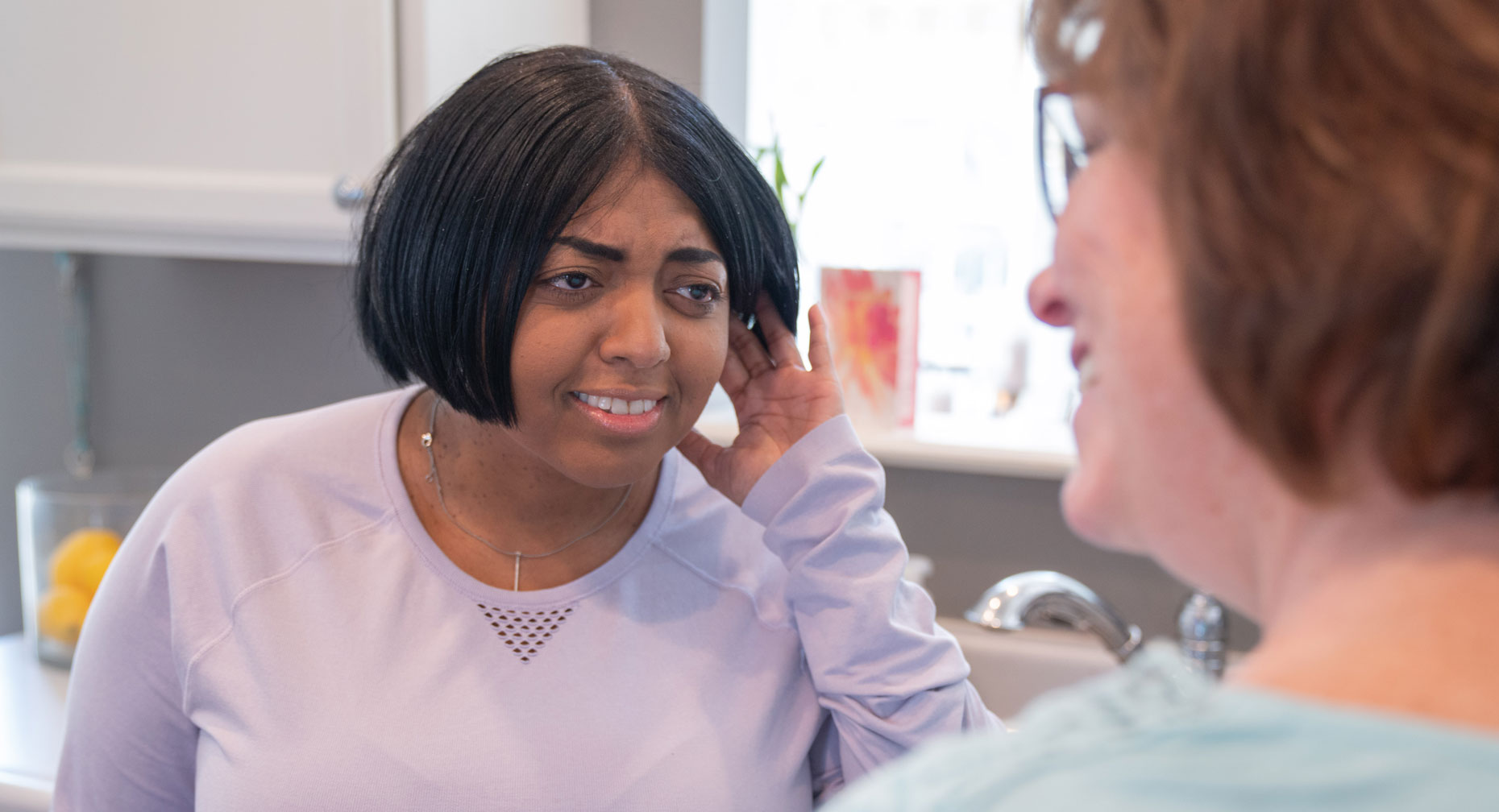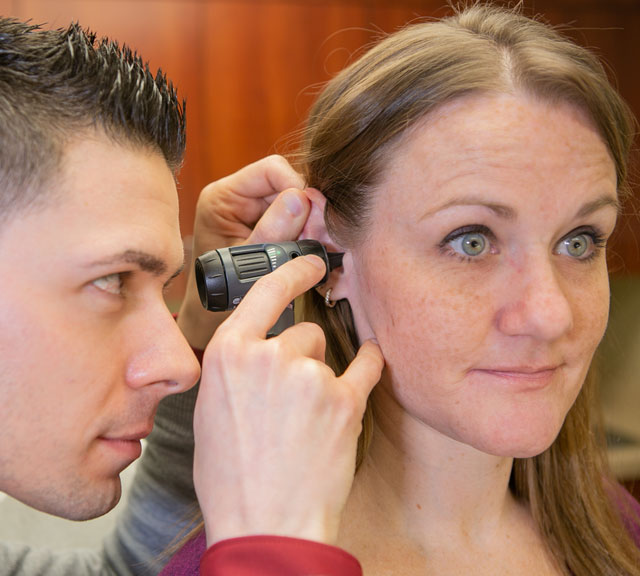Diabetes and Hearing Loss: What’s the Connection?

Answer a few questions and we'll provide you with a list of primary care providers that best fit your needs.
Do you have diabetes or abnormally high blood glucose levels? If so, doctors recommend you get your hearing checked every year.
Though the science behind the connection is unsettled, there is a clear link between diabetes and hearing loss. According to the 2009 National Health and Nutrition Examination Survey of the Centers for Disease Control and Prevention, those with diabetes — some 30 million people in the United States — are twice as likely to experience hearing loss as people without diabetes. And if you have prediabetes (elevated blood glucose levels, but not high enough for a diabetes diagnosis) you’re at 30 percent greater risk of hearing loss.
How Are Diabetes and Hearing Loss Linked?
Studies are ongoing, and at this point scientists are not entirely sure just how diabetes relates to hearing loss. Leading theories point to how high blood glucose can damage blood vessels and impair blood flow. Researchers suggest that hearing loss could be traced to blood vessel damage in the ear resulting from up-down swings in blood glucose levels that are common among those with diabetes.
Blood vessel damage could affect the cochlea, the delicate spiral-shaped portion of the inner ear that helps turn sound vibrations into nerve impulses that are then sent to, and interpreted by, the brain.
Though the science behind the connection is unsettled, there is a clear link between diabetes and hearing loss.
What Are the Symptoms of Hearing Loss?
Common signs of hearing loss may include:
- Difficulty following conversations, particularly with more than one person
- Problems with balance when you stand up
- Frequently needing to turn up the volume on the TV, radio, or cell phone
- Trouble hearing over background noise, as in a restaurant or a busy store
Additional Risks for Hearing Loss

In addition to diabetes, these other factors can contribute to hearing impairment:
- Being 65 or older
- Being male
- Being non-Hispanic white
- Regular exposure to loud noises
- Frequently missing your blood glucose targets
- Having heart disease
- Smoking
- Having a genetic predisposition to hearing loss
- Having other ear problems, such as disease or infection
Can Diabetes-Related Hearing Loss Be Prevented or Treated?
Once the inner ear is damaged, lost hearing cannot be restored. With that in mind, it’s important to manage your blood glucose carefully, get your hearing checked regularly, and talk to a health care provider as soon as you can when hearing-related concerns arise. In addition, it’s important to get regular exercise to maintain the adequate circulation needed for healthy ears and good hearing.
You can also take common-sense steps to protect your hearing. Turn down the volume on personal electronic devices, the television and car radio. If you engage in noisy hobbies — or know you’ll be attending an event with excessive noise levels — protect your ears with headphones or disposable earplugs.
If you experience hearing problems, your primary care doctor may suggest that you see an otolaryngologist (an ear, nose, and throat specialist) and/or an audiologist. Hearing tests can be done to see how well your ears are functioning. If needed, treatment options will be discussed. These might include using amplifiers for your devices (such as your phone), hearing aids, and cochlear implants (surgically implanted devices that stimulate the auditory nerve to recreate a sense of sound).
Answer a few questions and we'll provide you with a list of primary care providers that best fit your needs.
Source: American Diabetes Association; American Speech-Language-Hearing Association; Diabetes Forecast magazine (American Diabetes Association)




